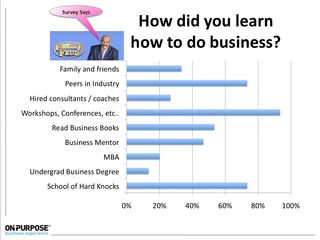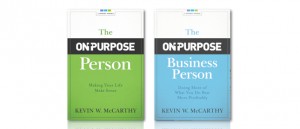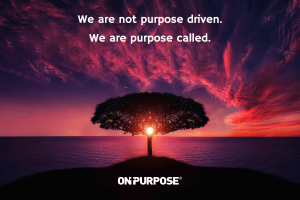Do you feel like a failure? How are you choosing to frame “failure”?
Unemployment, slow business, foreclosures, and underemployment are just some of the struggles pressing into the hearts and minds of many today. As debt stares you in the face and the opportunities apparently diminish, the personal repercussions can cause us to lose hope and begin to see our lives as failing.
This situational depression can weigh on one’s spirit to the point of discouragement and negativity if we paint ourselves as failures.
What if your perspective, not your current circumstance, is the problem?
Today’s On-Purpose Minute invites us to stop looking outward and begin looking inward and upward for a fresh approach that holds the key to grasping the present situation and life beyond.
Thomas Alva Edison, the great inventor, saw “failure” as information. (See the video clip “I Haven’t Failed” by my actor friend, Frank Attwood, who portrays Edison.) How many times have you tried and “failed” only to discover you were one step closer to success?
Gene Kranz, NASA Flight Director, in the movie Apollo 13 is attributed with saying “Failure is not an option,” in the face of saving the crew in space. When failure isn’t an option, then what are the options?
- Learning
- Growth
- Preparation
- Creativity
- Exploration
- Work-arounds
Fresh and exciting options must open up!
When we play scared, we play not to win.
The best we can do is hold steady or lose ground. A shaky self-defeating cycle is set up that once it is in motion can gain momentum and overwhelm us.
Learning to play with reasoned abandon may sound like an oxymoron, but it isn’t. It means that we’re disconnected specifically to the end result, but we’re highly focused on the matters at hand. This frees us to play for the sheer joy and moment, yet aware that what we’re doing in the moment matters. Athletes call it being in “the zone.” It is preparation and hard work intersecting with opportunity.
Truthfully, you’re apt “to choke” the first few encounters, but in time you’ll grow through the experience and be on the way to success. That’s how failures become successes.


 We are not purpose driven. We are purpose called.
We are not purpose driven. We are purpose called.


![Reblog this post [with Zemanta]](http://img.zemanta.com/reblog_e.png?x-id=368e97aa-61d6-4a95-b437-acd84169feee)